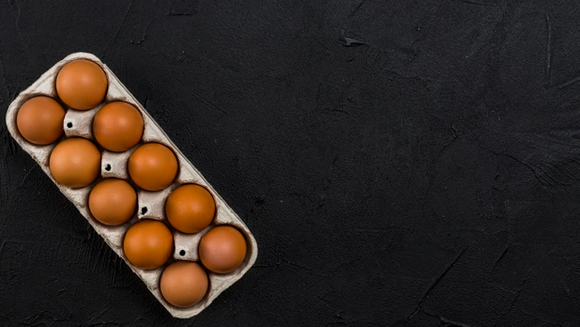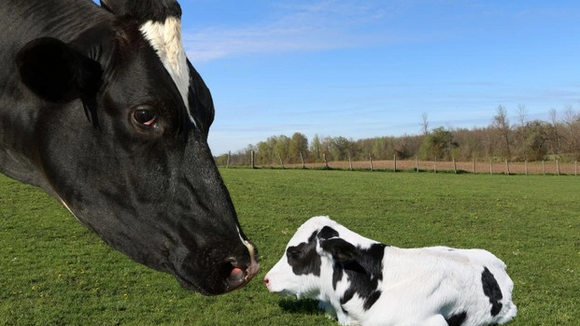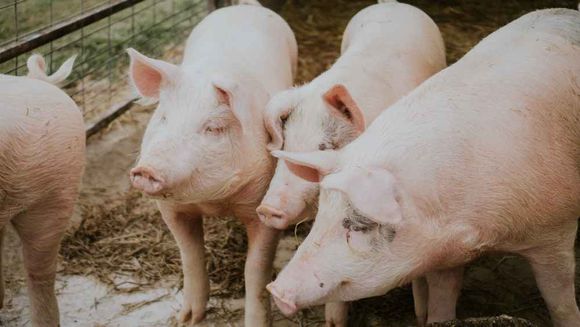Global use of antibiotics in animals
Globally, the USA and China are the largest users of antibiotics for food production. According to the Food and Drug Administration (FDA), 80% of total antibiotic use in the USA is in agriculture, with pigs and poultry receiving 5 to 10 times more antibiotics than cows and sheep.
However, why are antibiotics being used ubiquitously in these animals? One possible reason is because of the demands of the meat industry, which exploits animal health. Keeping animals for meat is a particularly intensive process, with sows, for example, not getting enough time to recover between births. This compromises their immune system and disrupts their overall health.
Also, pigs and hens live in enclosed, extremely narrow spaces and cages, which increases the stress and risk of disease transmission. Here we should also examine the methods of killing these animals, which in many countries are still inhumane and cause unparalleled stress in the last hours or minutes of the animal's life.
In addition, antibiotics are applied to animals in farms and agricultural holdings to make them grow faster. [ref. 1] In humans, studies have shown that antibiotics increase the risk of weight gain and obesity as they destroy beneficial gut bacteria that help regulate weight. Some researchers also believe that changes in the intestinal microbiome have led to an increase in the incidence of autism, Alzheimer's disease and Parkinson's disease. [ref. 2] [ref. 3]
Antibiotics and animal microbiome
Weaning practices that take place on farms affect the microbiome of animals and create a false need for antibiotics. In many places, piglets are taken away from their mothers too early – that is, before they have had a chance to develop a strong immune system or a healthy, fully functional gastrointestinal tract. The situation with birds is similar – the microbiome of poultry is even more affected by intensive farming practices than that of pigs.
The main reason for this is that in birds, early colonization of the intestine occurs during the development of the egg in the mother's egg line. Chickens ingest microorganisms from the mother at this stage, as well as through the pores of eggs during hatching.
Once the chicks hatch, they continue to enrich their microbiome. In modern agricultural systems, however, eggs are taken away from the mother and cleaned on the surface, which removes beneficial bacteria.
Finally, the overcrowded areas on which chickens often live can cause even more stress. This in turn predisposes to the development of E. coli and Salmonella infections. It is another example of how the environment can affect the microbiome of birds.

Consequences for human health and microbiome
So what does this use of antibiotics in animals mean for human health? We tried to synthesize the potential consequences for antibiotic resistance in humans.
The most important thing to consider is that every time antibiotics are used, whether in animals or humans, antibiotic resistance can develop later in time. The reasons for use in both animals and humans must be justified in order to reduce the negative effects of such practices and to use them only if necessary.
There are several main ways in which antibiotics in animals can affect humans. First, direct contact between animals and humans can cause disease. One example is the danger of farmers being colonized by methicillin-resistant staphylococcus aureus associated with livestock farming.
A review of previous studies on the pork production chain found that the slaughter process played a crucial role in the transmission of MRSA from the farm to the mass of the consuming person. The whole document is available in English here: From Pig to Pork: Methicillin-Resistant Staphylococcus aureus in the Pork Production Chain.
The second way in which the use of antibiotics in animals can affect humans is through the consumption of antibiotic residues in meat, which then provide selective pressure in favour of antibiotic-resistant microorganisms in humans. And the third way is that antibiotic-resistant bacteria present in meat can transfer antimicrobial resistance into human bacteria. For that reason that thermal processing of meat before consumption is recommended in order to reduce potentially harmful effects when consumed.
Looking ahead to antibiotic resistance
Antibiotic resistance is a serious threat to public health, as antibiotic-resistant bacteria associated with animals can be pathogenic to us, and are easily transmitted to humans through food chains and widespread in the environment through animal waste.
While the emergence of a virus such as SARS-CoV-2 is a relatively rare event, on a more routine basis the widespread use of antibiotics in animal farming produces antibiotic-resistant bacteria that can lead to the failure of therapy with a negative effect on animal and human health. These bacteria have the potential to spread to humans and cause a wide range of difficult to treat infections.
Current legislation - what is the situation
On 28 January 2022, the new Laws of the European Union enter into force, which prohibit the routine feeding of farm animals with antibiotics, a move that the organisation World Animal Protection considers the most progressive in the world. Across Europe, there are more than 300 million caged animals and 7.2 billion chickens produced each year. The majority of these animals live in poor conditions on farms where they are fed antibiotics into feed or water to prevent them being subjected to diseases as a result of cruel treatment. The new provisions mean that only sick animals (and not whole flocks) can be given antibiotics. It is currently illegal to use antibiotics to compensate for low welfare practices. [Ref. 4]
According to a post in The New York Times, the F.D.A. has banned the use of antibiotics to stimulate growth in animals in 2017.










